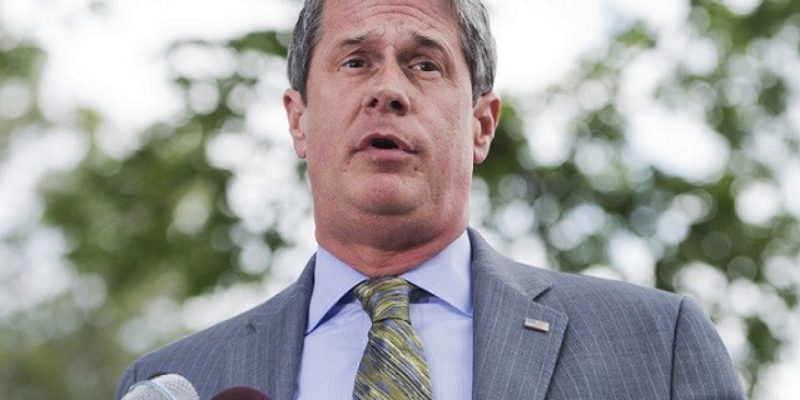That Sen. David Vitter beat the system constricting the use of campaign donations gives a clear signal that Louisiana needs to rid itself of any limitations on political speech in state elections.
When Vitter launched his gubernatorial candidacy a year ago, that only meant he had taken the idea a step further than some dozen years earlier. For back then, in the waning of Gov. Mike Foster’s terms, Vitter, then only three years in the U.S. House of Representatives after several years in the state Legislature, had contemplated making a run for governor. His idea would have been to use money in his federal campaign account to fuel the run for the top office.
But his fellow Republican but political foe Foster (at loggerheads, trivially, over allowing another Indian casino) would have none of that, and pushed legislators, enough of whom had their own partisan reasons for wanting Vitter out of the race, to pass a law prohibiting the use of that money, roughly a million dollars then. In part, it led Vitter to passing on the chance.
Interestingly, this led Vitter next to try for the Senate, where after his election in a short period he was being mentioned as a possible vice presidential running mate. But he placed a ceiling on his career in national politics when in 2007 he confessed to an unspecified “serious sin” that allegedly involved prostitution. That future attenuated, he returned his attention to state politics, beginning with assisting GOP candidates for legislative offices and now taking an option out on the Governor’s Mansion.
In the interim, his federal campaign kept bringing in the bucks, beginning 2013 with over $600,000. Still, he could not use this as a source of funds for a state campaign, so he got some allies to start the Fund for Louisiana’s Future political action committee, to which he transferred the maximum $100,000 from his federal account last Feb. 13. This is legal as the group is run independently of Vitter’s campaign and he has no control over it.
Then the group sued the state to allow for donations of more than $100,000 to go into it, successfully. Whether than had anything to do with, the group intends to report to the federal government around $3 million to wrap up 2014, presumably the bulk of it if not all of it to be used to stump on behalf of Vitter. This is on top of what Vitter intends to report to the state government of around $3.5 million in his state campaign account.
As Vitter states this is his last attempted office in his political career, with the nearly million dollars he has in his Senate account and now no limits to a super PAC donation in an election cycle, there’s no reason in the future that he can’t give the bulk of it to the PAC and, with a high degree of confidence, hope it gets spent on his behalf. In essence, he has defeated the “bitter Vitter” Act 126 of the First Extraordinary Session of 2002.
With the state conceding to the federal judiciary on this issue, this spring the Legislature should repeal the portions of R.S. 1505.2 both relevant to that section and the one putting on the now voided limit. But in a spirit of respect to First Amendment rights, it should go further and eliminate all limits of campaign finance giving, replacing them with strict reporting requirements of name, address, and amount of every donor, beginning in 2016. Not only would this maximize political speech possibilities, it also would negate any need for subterfuge or complex workarounds that only serve to create paperwork, bureaucracy, and increased employment opportunities for the army of lawyers, accountants, and clerks, needed to comply with these laws.
It might not have occurred to anybody that without these Byzantine laws this could drive down considerably the total cost of campaigning and reduce the amount of money in politics. And it would make for more transparency in campaign finance, without having to trace funds’ origins through a maze. While existing campaign finance limitations may appear to make elections more honest, in reality these have no beneficial impact on them that a system of stringently reported unlimited funds would not. When considering their costs both in monetary terms and in the limitations they place on political speech, limits presently on the books aren’t worth it.
Advertisement
Advertisement

